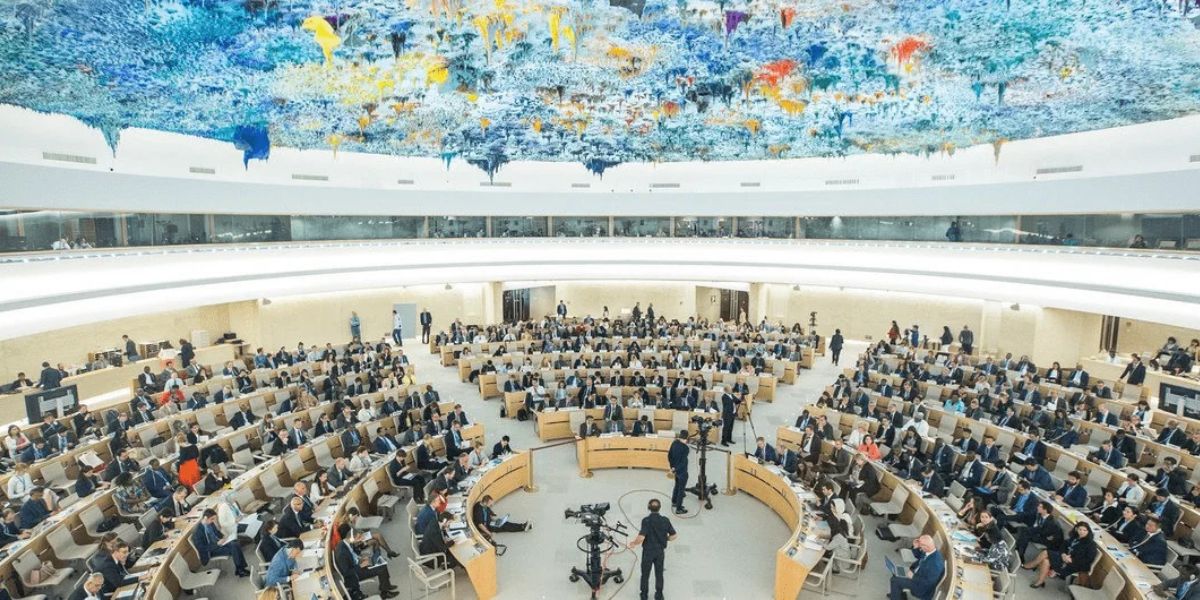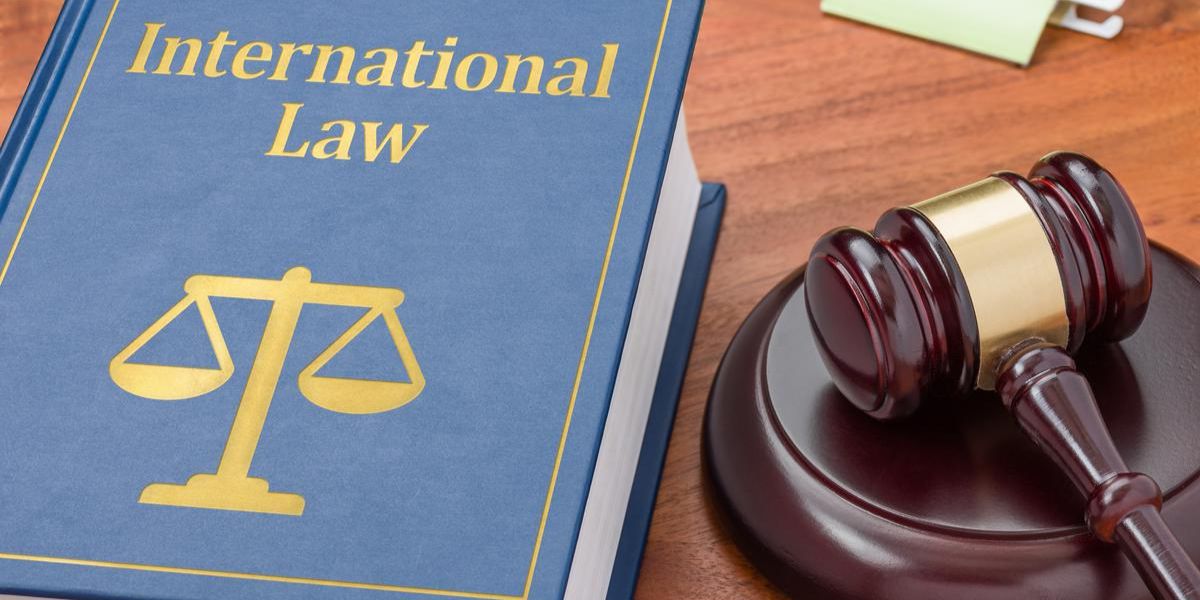International law has become an integral part of the global legal landscape, impacting domestic legal systems in various ways. It has transcended traditional boundaries, influencing national laws, judicial decisions, and governance structures. For law students pursuing an LLM (Master of Laws) abroad, understanding the intersection of international and domestic law is critical. This blog explores how international law shapes domestic legal systems, its evolution, and its role in creating a more interconnected and harmonized world.

Understanding International Law
International law refers to the body of rules and principles that govern the relations between sovereign states, international organizations, and other international actors. These laws are often codified in treaties, conventions, and agreements between nations, as well as in customary international law. Key areas of international law include human rights law, environmental law, trade law, maritime law, and international humanitarian law, among others.
International law operates at a level that is distinct from national or domestic law. However, the relationship between these two legal realms is far from straightforward. Many international treaties require countries to adapt their domestic legal frameworks to meet international obligations. Similarly, national laws often need to align with international conventions to ensure that a country is compliant with its global commitments.
The Influence of International Law on Domestic Legal Systems
International law exerts its influence on domestic legal systems in various ways, impacting everything from the structure of the judiciary to the rights of individuals. Below are some of the key ways in which international law affects domestic legal frameworks:
1. Incorporation of International Treaties into Domestic Law
One of the most direct ways in which international law affects domestic legal systems is through the incorporation of international treaties into national law. Many international agreements require signatory countries to implement specific provisions within their domestic legal systems. For example, human rights treaties like the International Covenant on Civil and Political Rights (ICCPR) or the Convention on the Elimination of All Forms of Racial Discrimination (CERD) mandate countries to adopt laws that protect the rights of individuals.
Countries vary in how they incorporate international treaties into their domestic legal systems. Some countries, like the United States, follow a dualist approach, where international treaties are not automatically part of domestic law and must be separately ratified by the national legislature. On the other hand, countries such as the United Kingdom and India adopt a monist approach, where international law is automatically incorporated into national law once ratified.
2. Supremacy of International Law in Constitutional Frameworks
In some countries, international law enjoys supremacy over domestic law. This means that international treaties and agreements, once ratified, override conflicting national laws. For instance, the European Union (EU) has a system where EU law takes precedence over member states’ domestic law, ensuring uniformity across the Union. Similarly, the Constitution of the Republic of South Africa recognizes international law as an integral part of its legal system, with a preference for international law where conflicts arise between domestic and international norms.
In contrast, many countries operate under a constitutional framework that reserves the right to invalidate international treaties if they conflict with fundamental national principles. The balance between respecting international obligations and safeguarding national sovereignty is a delicate one, and countries continuously debate the extent to which international law should supersede domestic legislation.
3. Judicial Enforcement of International Law
International law can also have a direct impact on domestic legal systems through judicial decisions. National courts often refer to international law in their rulings, especially in areas such as human rights, trade, and environmental protection. This process is known as the incorporation or application of international law by national courts.
For example, the European Court of Human Rights (ECHR) has the authority to interpret and enforce the European Convention on Human Rights. National courts in European countries must follow the decisions of the ECHR, even though it is not a domestic judicial body. Similarly, in the United States, federal courts may apply international law principles in cases involving treaties, customary international law, and international agreements.
National courts also play a crucial role in ensuring compliance with international law. For instance, if a country’s domestic law conflicts with its international obligations, national courts may strike down the conflicting legislation, thereby reinforcing the country’s international commitments. This judicial oversight reinforces the idea that international law and domestic law are not mutually exclusive but complementary.
4. Human Rights Protection and Domestic Law
One of the most significant ways in which international law influences domestic legal systems is through human rights law. Over the past few decades, international human rights treaties have had a profound effect on domestic legal frameworks, especially in countries that were previously characterized by authoritarian regimes or widespread violations of human rights.
International treaties such as the Universal Declaration of Human Rights (UDHR) and regional human rights instruments like the European Convention on Human Rights have led to the establishment of human rights protections at the domestic level. Many countries have incorporated international human rights standards into their national constitutions, laws, and judicial decisions. These protections often guarantee fundamental rights such as freedom of speech, the right to a fair trial, and protection from torture and inhuman treatment.
Moreover, the role of international human rights monitoring bodies, such as the United Nations Human Rights Council (UNHRC) and the Inter-American Commission on Human Rights (IACHR), has increased the accountability of states. These bodies issue recommendations and reports that often influence national policies and legal reforms. By compelling countries to respect their human rights obligations, international law has made significant strides in promoting justice and equality.
5. Trade and Economic Laws
International trade law, governed by organizations like the World Trade Organization (WTO) and various bilateral and multilateral agreements, has a considerable impact on domestic economic laws. The globalized economy requires countries to harmonize their trade practices and comply with international rules governing tariffs, subsidies, and dispute resolution mechanisms.
In domestic legal systems, international trade agreements influence the creation of national regulations on customs, tariffs, intellectual property, and competition law. Countries that are members of international trade organizations must adopt legislation that aligns with the global framework. For example, WTO member states are required to adhere to WTO rules concerning intellectual property rights, trade barriers, and dispute resolution procedures. This often leads to significant legal reforms, including the modernization of national trade regulations to align with international standards.
6. Environmental Law
Environmental law is another area where international law has left a significant mark on domestic legal systems. Treaties such as the Paris Agreement on climate change have encouraged countries to implement environmental policies and legal frameworks aimed at addressing global environmental challenges. As countries face increasing environmental degradation, international law has provided the framework for collective action through global environmental agreements.
For instance, many countries have adopted national laws on biodiversity protection, pollution control, and climate change mitigation in line with their international commitments. Domestic courts have also become instrumental in enforcing international environmental law, holding governments and corporations accountable for their role in environmental destruction.
The Challenges of Implementing International Law Domestically
While international law has a profound impact on domestic legal systems, its implementation presents several challenges. One of the primary obstacles is the conflict between international obligations and national sovereignty. Some countries, particularly those with strong nationalist sentiments, may be reluctant to adopt international norms that may conflict with their domestic values or policies. This tension is evident in issues such as human rights, environmental law, and trade regulations.
Additionally, the practical implementation of international law can be complex, particularly in countries with weak legal systems or limited resources. In such cases, the capacity of national courts and governments to enforce international law may be hindered, limiting the effectiveness of international agreements.
International law plays a crucial role in shaping domestic legal systems and fostering cooperation among countries. As globalization continues to advance, the influence of international law on domestic legal frameworks will only grow stronger. For students pursuing an LLM abroad, understanding the impact of international law on national legal systems is essential for navigating the evolving legal landscape. With increased interconnectedness, the importance of international law in promoting justice, human rights, and peace cannot be overstated. By integrating international law into domestic legal practices, countries can ensure that they are part of a collective effort to address global challenges and uphold fundamental rights.
FAQs
How does international law influence domestic law?
International law impacts domestic law through treaties, judicial rulings, and human rights obligations that require national legal systems to align with global standards.
Do international treaties automatically become domestic law?
The incorporation of international treaties into domestic law depends on a country’s legal system, with some adopting a monist approach and others requiring separate ratification.
What role do national courts play in international law?
National courts apply and enforce international law in cases involving treaties, human rights, and other global legal norms, ensuring compliance within the domestic legal system.



